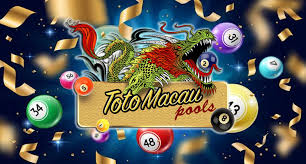Casinos have long captured the imagination of people around the world, serving as a focal point for entertainment, socialization, and the thrill of chance. From their humble beginnings in ancient civilizations to the glittering establishments of today, zeus slot have evolved into multifaceted entertainment hubs that continue to shape and reflect the culture of their times.
The Origins: Ancient Games of Chance
The concept of gambling dates back thousands of years, with evidence of rudimentary games of chance found in various ancient civilizations. The Chinese were among the first to engage in gambling, with tiles from as early as 2300 B.C. believed to have been used for a game of chance. Similarly, the ancient Egyptians had their own dice games, and the Greeks and Romans were known to gamble on chariot races and gladiatorial contests.
These early forms of gambling were deeply ingrained in the social fabric of their respective societies. Gambling was not merely a pastime; it often had religious or cultural significance. For example, the Romans believed that the outcome of a game could be an indication of divine will.
The Birth of the Modern Casino: Venice’s Ridotto
The first true casino as we know it today can be traced back to 1638 in Venice, Italy. The Ridotto, which means “private room,” was established by the Venetian government to provide a controlled environment for gambling during the carnival season. Unlike the informal gambling gatherings of the past, the Ridotto was a public establishment where people could gamble under regulated conditions.
The Ridotto set the stage for the development of modern casinos, combining the social aspect of gambling with the opportunity to win money. It was a place where the wealthy could indulge in games of chance while enjoying the company of their peers.
The Golden Age of Casinos: Las Vegas and Beyond
The 20th century marked the golden age of casinos, with Las Vegas emerging as the gambling capital of the world. The legalization of gambling in Nevada in 1931 paved the way for the construction of the first casinos on what would become the famous Las Vegas Strip.
Las Vegas quickly grew into a sprawling entertainment oasis, attracting visitors from around the globe. Iconic casinos like The Flamingo, Caesars Palace, and The Bellagio became synonymous with luxury, excess, and the promise of fortune. The city’s casinos were more than just gambling establishments; they were complete entertainment complexes, offering shows, fine dining, and luxurious accommodations.
The success of Las Vegas inspired the development of other major gambling destinations, including Atlantic City in the United States and Monte Carlo in Europe. These cities capitalized on the allure of casinos to boost tourism and revitalize their economies.
The Digital Revolution: Online Casinos
The advent of the internet in the late 20th century brought about a new era in gambling with the rise of online casinos. These virtual platforms allowed people to gamble from the comfort of their homes, breaking down geographical barriers and making gambling more accessible than ever before.
Online casinos offer a wide range of games, from traditional table games like blackjack and roulette to innovative slot machines and live dealer experiences. The convenience and anonymity of online gambling have contributed to its rapid growth, with the global online gambling market projected to reach over $92 billion by 2023.
While online casinos have expanded the reach of gambling, they have also raised concerns about problem gambling and the need for stricter regulations. As technology continues to evolve, the industry faces the challenge of balancing innovation with responsible gaming practices.
The Future of Casinos: Immersive Experiences and Sustainability
As we look to the future, the casino industry is poised for further transformation. Advances in technology, such as virtual reality (VR) and augmented reality (AR), are expected to create more immersive gambling experiences. Imagine stepping into a virtual casino where you can interact with other players and explore richly detailed environments—all from your living room.
Sustainability is another key focus for the future of casinos. Many modern casinos are incorporating eco-friendly practices, such as energy-efficient lighting, waste reduction programs, and sustainable building materials. As awareness of environmental issues grows, casinos are likely to play a role in promoting sustainability within the broader tourism and entertainment sectors.
Conclusion
The history of casinos is a fascinating journey through time, reflecting the changing values, technologies, and aspirations of society. From the ancient games of chance to the digital and immersive experiences of today, casinos have continually reinvented themselves to remain relevant and appealing to new generations of players. As the industry evolves, it will undoubtedly continue to be a powerful force in entertainment, offering thrills, social connection, and the promise of fortune.

